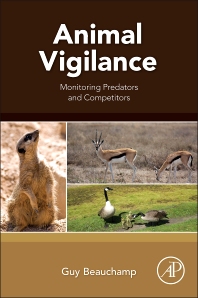
Animal Vigilance: Monitoring Predators and Competitors PDF
272 Pages·2015·2.4289 MB·other
Most books are stored in the elastic cloud where traffic is expensive. For this reason, we have a limit on daily download.
Preview Animal Vigilance: Monitoring Predators and Competitors
Description:
Animal Vigilance builds on the author's previous publication with Academic Press (Social Predation: How Group Living Benefits Predators and Prey) by developing several other themes including the development and mechanisms underlying vigilance, as well as developing more fully the evolution and function of vigilance. Animal vigilance has been at the forefront of research on animal behavior for many years, but no comprehensive review of this topic has existed. Students of animal behavior have focused on many aspects of animal vigilance, from models of its adaptive value to empirical research in the laboratory and in the field. The vast literature on vigilance is widely dispersed with often little contact between models and empirical work and between researchers focusing on different taxa such as birds and mammals. Animal Vigilance fills this gap in the available material. Tackles vigilance from all angles, theoretical and empirical, while including the broadest range of species to underscore unifying themes Discusses several newer developments in the area, such as vigilance copying and effect of food density Highlights recent challenges to assumptions of traditional models of vigilance, such as the assumption that vigilance is independent among group members, which is reviewed during discussion of synchronization and coordination of vigilance in a group Written by a top expert in animal vigilance
See more
The list of books you might like
Most books are stored in the elastic cloud where traffic is expensive. For this reason, we have a limit on daily download.
